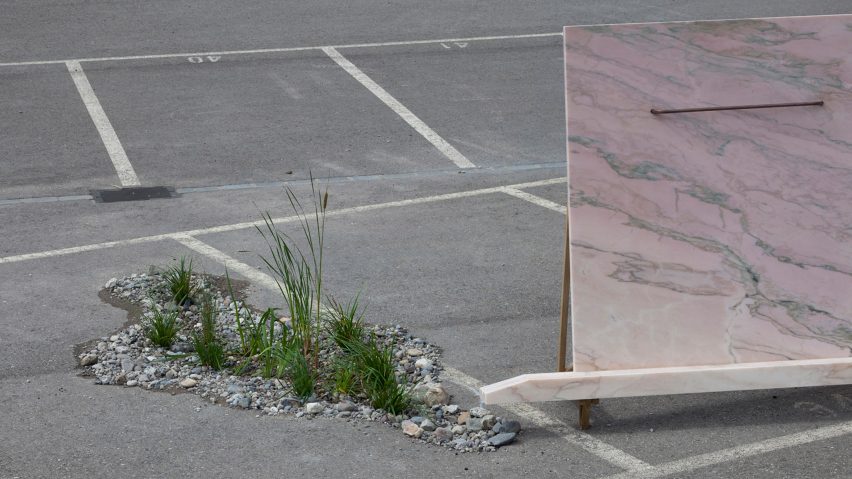From female urinals for festivals to pissoirs on the streets of Paris, here are six of the freshest outdoor urinals designs for peeing in the fresh air.
When revellers at the Roskilde Festival in Denmark refused to stop peeing against the trees, Dutch design studio Aandeboom came up with an ingenious solution.
P-tree is a bright orange plastic urinal that can be mounted on trees, but protects them from the damaging effects of human urine. Pipes connected to the urinal can be hooked up to the main sewer system or funnelled into a tank.
Lapee by Gina Périer and Alexander Egebjerg
Launched at this year's Roskilde Festival, Lapee is a urinal that's bringing gender equality to the outdoor loo queue. Made from industrial-strength plastic, Lapee is a door-free place to pee that three women can use at once.
Screened by the curving form of the unit, the urinals are stepped up so a squatting woman is at eye-level with any passersby, making it safer than a normal toilet but still private.
These urinals caused uproar when they were installed on the streets of Paris. A portmanteau of the French words for pavement and urinal, French design studio Faltazi gave the Uritrottoir a bright red upper section topped by a box planted with greenery.
Users pee into the opening, and the urine is absorbed by the woodchips, straw or sawdust that's placed inside. This mix is periodically removed and mulched down into compost, which is then returned to nurture the plants that grow out of the top of the Uritrottoir.
An earlier design for a female urinal – and another design tested at the Roskilde Festival – is the Pollee. Copenhagen-based studio UiWE designed four back-to-back troughs for women to stand over and pee touch-free.
The shared core is separated by fold-out screens for privacy, and handles allow people to squat and pee in the open air without touching any part of the urinal.
Part art-installation, part practical-intervention, Fountain 2017 is a pink marble pissoir that was installed in a car park in Zurich. Made from imported marble resting on a wooden frame, the urinal references classical fountains.
Liquid collects in a channel at the base, which pours it out into a pothole filled with gravel and plants. After dark, a neon light serves as an invitation for passersby who might be caught short at night.
Another Faltazi design, this time for urinals that can be set up in a field. L'Uritonnoir – a cross between urinal and the French for funnel – can be slotted into the side of a bale of straw and fastened there with a strap.
The urine collects in the bale, and the nitrogen reacts with the carbon in the straw to set off the process of decomposition. After use, the bale can be composted or simply left in-situ for a year to break down into compost.

